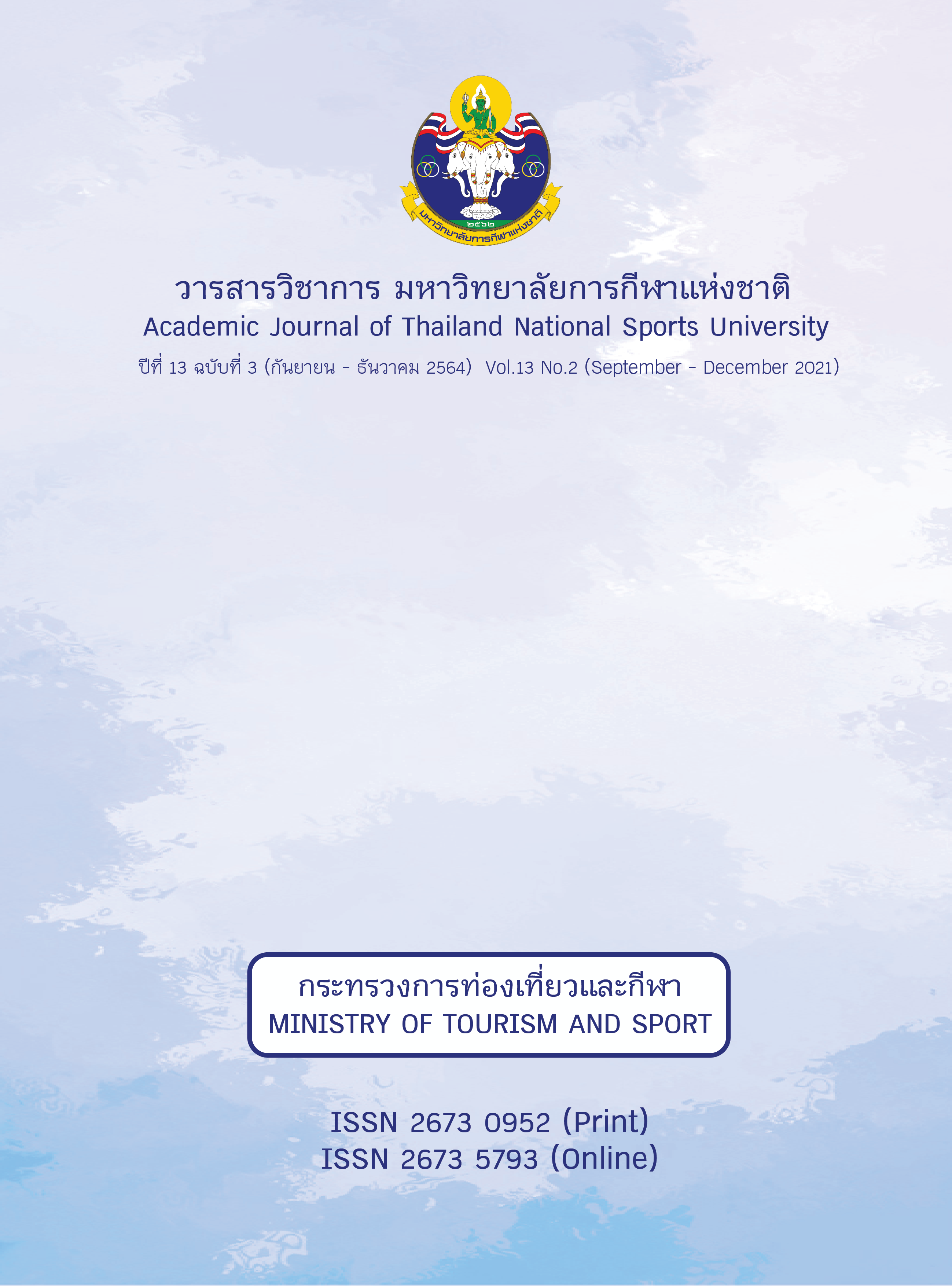EFFECTS OF HEALTH EDUCATION LEARNING MANAGEMENT USING FLIPPED CLASSROOM ON LEARNING ACHIEVEMENT AND CRITICAL THINKING OF TENTH GRADE STUDENTS
Main Article Content
Abstract
Purposes: To compare mean scores of learning achievement and critical thinking before and after implementation of an experimental group and a control group, and to compare the mean scores of learning achievement and critical thinking after implementation between the experimental group students and the control group students. Method: The subject were 64 tenth grade students, divided equally into two groups: 32 of the experimental group students were assigned to study under the health education learning management using Flipped Classroom Concept and 32 of the control group students were assigned to study with conventional teaching method. The research instruments were comprised of 8 health education lesson plans using Flipped Classroom concept with IOC of 0.99 and the data collection instruments included learning achievements in the area of knowledge, attitude, practice test and critical thinking test with IOC of 0.95, 0.96, 0.96 and 1.0, reliabilities of 0.82, 0.81, 0.81 and 0.80. The duration of the experiment was 8 weeks. The data were analyzed by mean, standard deviation and t-test (Paired-Sample t-test, Indipendent- Sample t-test). Results: The research findings were as follows: The mean scores of the learning achievement in the area of knowledge, attitude, practice and critical thinking of the experimental group students after learning were significantly higher than before learning at .05 level and the mean scores of the learning achievement in the area of knowledge, attitude, practice and critical thinking of the experimental groups students after learning were significantly higher than the control group students at .05 level. Conclusion: Health education learning management using Flipped Classroom Concept effect on learning achievement and critical thinking of tenth grade students higher than health education learning management with conventional teaching method.
Article Details
The published article is a copyright of the Academic Journal of Thailand National Sports University. The passage appeared in each article in this academic journal is a perspective of each author which is not related to the journal. Each author is required to be responsible for all components of his/her own article. If there are any mistakes, each author must be responsible for those mistakes on his/her own.
References
Arlawiya Saa. (2016). Effect of flipped classroom on learning achievement, analytical thinking skills and instructional satisfaction of grade 11 students (Master’s thesis), Prince of Songkla University.
Bergman, J., & Sam, A. (2012). Flip your classroom: reach every student in every class every day. Washington DC: International Society for Technology in Education.
Bloom, B., & Krathwoh, D. (1956). Taxonomy of educational objectives: The classification of educational goals by a committee of college and university examiners. Handbook I: Cognitive Domain. New York: Longmans, Green.
Bureau of Acabeme Affairs and Educational Standards. (2008). Basic Education Core Curriculum 2008. Bangkok: The Agricultural Co-operative Federation of Thailand Press, LTD.
Chen, L. (2016). Impacts of flipped classroom in high school health education. Journal of Educational Technology Systems, 44(4), 411-420.
Cronbach, Lee. J. (1990). Essentials of phychological testing (5th ed.). New York: Harper & Row.
Shuangjian. (2015). Enhancing efl speaking via flipped classroom model and constructive role plays, School of Foreign Languages. Institute of Social Technology, Suranaree University of Technology.
Mehta, S. et al. (2018). Assessing Omani University Entrants’ Critical Thinking Skills with the Cornell Class-Reasoning Test Form X. Sultan Qaboos University.
Ministry of Education. (1999). National Education Act B.E. 2542 (1999). Bangkok: Siam Sport Syndicate Public Company Limited.
Paitoon Sinlarat. (2016). Education 4.0 is more than education. Bangkok: Chulalongkorn University Printing House.
Phatchada Butyathaworn et al. (2016). The effect of teaching using flipped classroom teaching method with online learning and inquiry teaching method on the topic of circulatory system. Journal of Education, Khon Kaen University, 10(2).
Shotiga Pasiphol. (2015). Learning measu rement and evaluation. Bangkok: Department of educational research and psychology, Faculty of education. Chulalongkorn University.
Sirichai Kanjanawasee. (2013). Classical Test Theory (7th ed.). Bangkok: Chulalongkorn University Press.
Surasak Pahae. (2013). Flipped Classroom: New classrooms. Dimension in the 21st Century. Retrieved from http://phd.mbuisc.ac.th/academic/flipped%20classroom2.pdf
Thai Health Promotion Foundation. (2015). Thai Health. Retrieved from http://resource.Thaihealth.or.th/lirary/collection/14905
Yibo, L. (2012). Effect of problem-based English writing instruction on critical thinking abilities and agumentative writing skills of Thai upper secondary school students (Master’s thesis), Chulalongkorn University.


